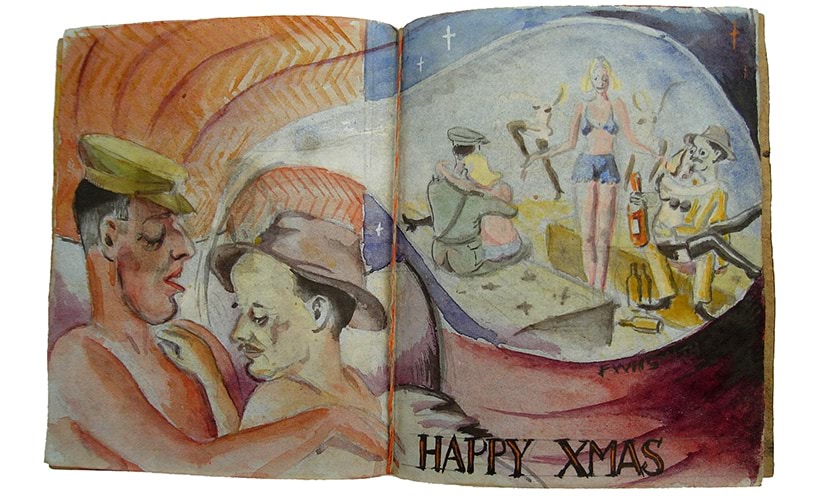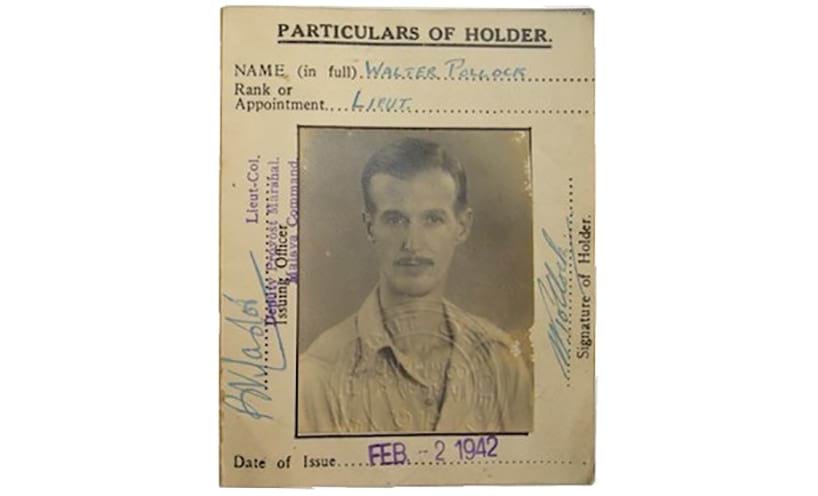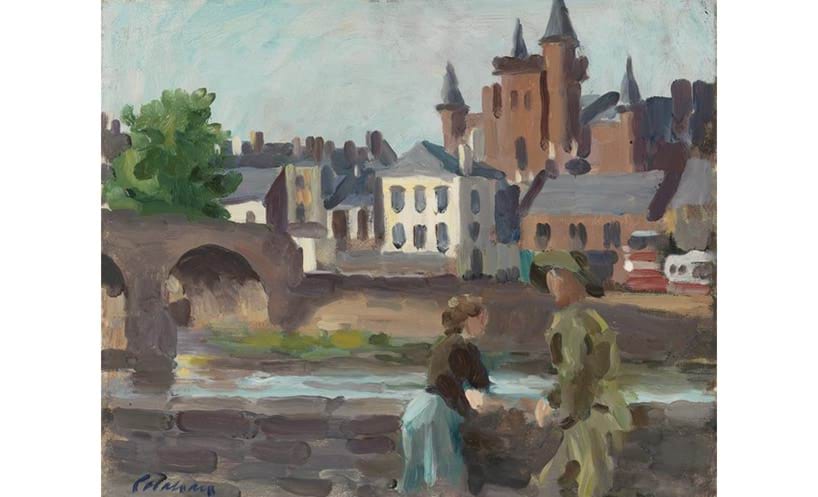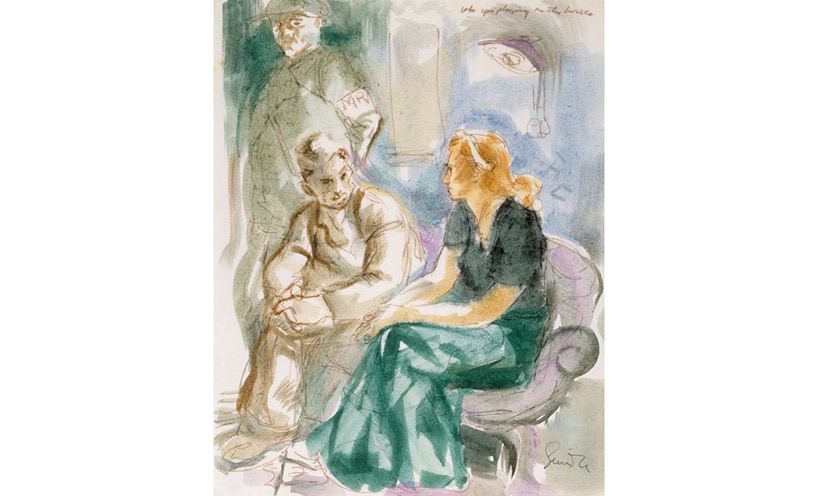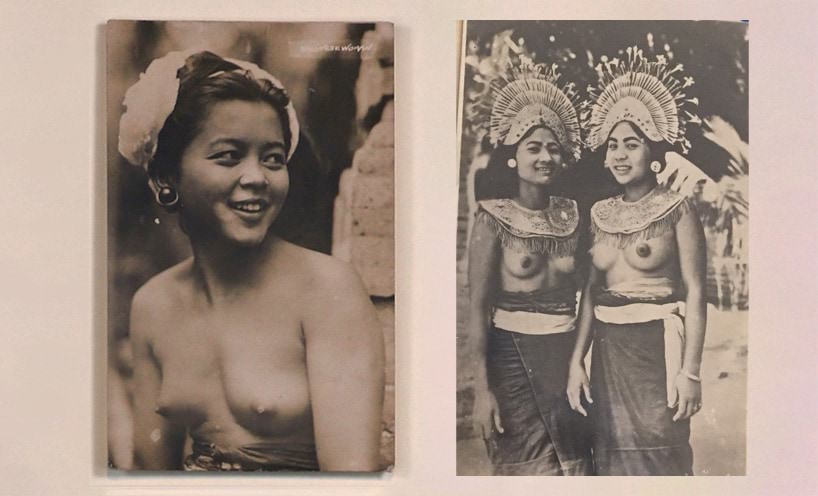Servicemen and women travel to distant, exotic locales during wartime, interacting with people—however fleetingly—they would never have otherwise met.
Perilous, uncertain times prime individuals for intense and personally transformative relationships.
Support could mean the difference between life and death...
Happy Xmas, 1944
by Fred Ransome Smith (1919–2019)
Two prisoners of war, Captain Walter Pollock (left) and Lieutenant Fred Ransome Smith, dream of better days ahead. Pollock kept Smith’s handmade Christmas Card until his death in 1972.
Malaya Command identity papers, 2 February 1942
belonging to Captain Walter Pollock
Scottish Idyll, 1942
by Colin Colahan (1897–1987)
An Australian soldier and a local woman overlook the River Nith at Dumfries, Scotland.
The mass movement of troops in wartime has profoundly affected the love lives of countless Australians. Over 12,000 Australian soldiers married while serving overseas during the First World War (1914–18) and they sponsored the passage of some 18,000 women and children to Australia at war’s end. Australian airmen, participating in the Empire Air Training scheme during the Second World War (1939–45), meanwhile, brought 4,027 wives and 878 fiancées to Australia in 1948. Fifteen thousand Australian women, in turn, left our shores in the postwar years—two thirds for the United States.
Soldier and woman, 1943
by Sidney Simon (1917–97)
The arrival of one million American servicemen in Australia during the Second World War (1939–45). stimulated much excitement. Wooing local women with nylon pantyhose and chocolates, the ‘Yanks’ were considered better dressed and mannered than their Australian counterparts and represented wealth, glamour and modernity for many Australian women.
A ‘moral panic’ arose among more traditionally minded Australians regarding women’s sexual agency and their enthusiasm for the Americans, prompting numerous op-eds including an Albany Advertiser article: ‘Now girls, go easy!’ (30 May 1942). Western Australian women were warned that they could be left ‘holding the baby’ and to ‘…look before you take the fatal leap’.
Balinese beauties, c 1940
photographer unknown
Travelling and encountering new people, cultures and experiences often serves as a powerful aphrodisiac. Australian servicepeople on deployment, like many other travellers, have often been guilty of viewing local people as the exotic ‘other’. This problematic objectification of people has been shaped by contemporary attitudes towards race, culture, power, and class.
The sexual politics notwithstanding, this nude postcard of a Balinese woman collected by Captain Lieutenant Jim Bryant MM and kept by him throughout his captivity at Changi prisoner of war camp, Singapore, served as a treasured beacon of hope during that dark time boosting his morale considerably.
Explore other themes from LUST LOVE LOSS
Updated

